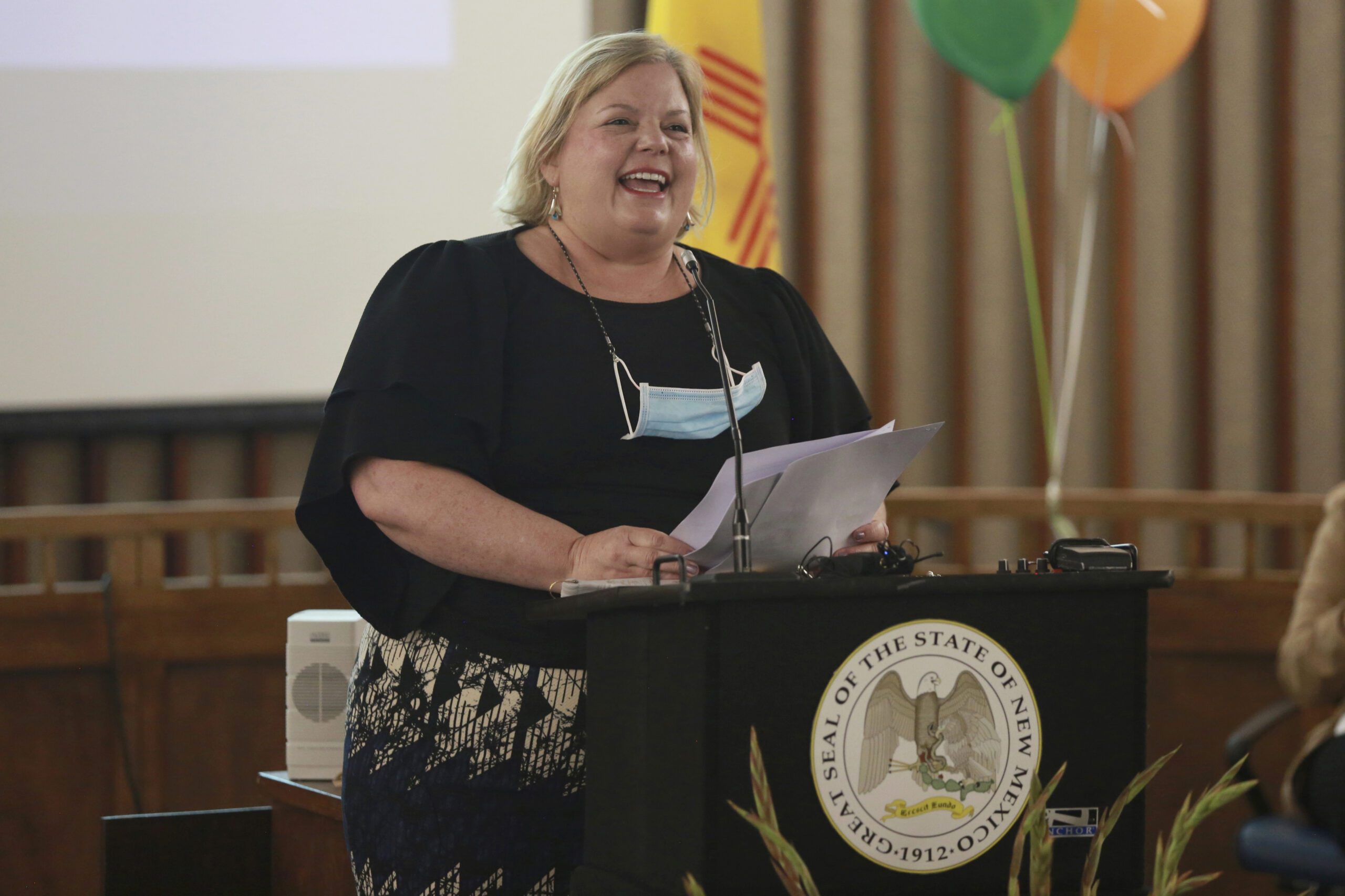New Mexico families often leave home-visiting programs that can improve infant health and safety

FILE - New Mexico Early Childhood Secretary Elizabeth Groginsky speaks during her one-year anniversary at her department on July 1, 2021, in Santa Fe, N.M. Groginsky attended a legislative hearing Thursday, July 20, 2023, in Farmington, N.M., to discuss efforts to expand and improve home visiting programs. Families of infant children in New Mexico are increasingly exiting earlier than expected from home-visiting programs aimed at improving the health, safety and emotional lives of preschool children. (AP Photo/Cedar Attanasio, File)
SANTA FE, N.M. (AP) — Families of infant children in New Mexico are increasingly exiting earlier than expected from home-visiting programs aimed at improving the health, safety and emotional lives of preschool children, state budget and accountability analysts announced Thursday.
Nearly 90% of New Mexico families enrolled in home visiting are not staying the expected length of time, versus a national average of about 50%. And more than half stay enrolled for less than 12 months, the Legislature’s budget and accountability office said in a presentation to state legislators in Farmington.
Home-visiting programs provide parenting guidance from pregnancy to rearing toddlers.
“Families are not staying in home visiting the expected length of time, nor are they getting the expected number of visits” each month from child-development professionals, said Sarah Dinces, a program evaluator for the budget and accountability office.
She said the trend makes it less likely that children will receive the expected benefits of home visits, including more mature behavior when children reach kindergarten.
Studies show children in New Mexico are among the most vulnerable in the nation when it comes to malnutrition, access to adequate medical care, and experiencing trauma. The evaluation of New Mexico’s home-visiting programs took place as legislators and Democratic Gov. Michelle Lujan Grisham ramped up annual spending on home visiting and expanded a suite of early education programs including no-cost preschool.
The study also found that New Mexico could expand home visiting enrollment to 5,400 more families by tapping into unused annual federal Medicaid funds.
About 6,300 families were enrolled in home visiting at last count in 2022 — equal to about 6% of households statewide with children under age 5.
Home visiting is offered by the state through 33 businesses ranging from small, local nonprofits to statewide medical providers, including Presbyterian Medical Services. The providers follow several different models of care.
Elizabeth Groginsky, secretary of the early childhood education agency that oversees the programs, said turnover in the home-visiting workforce is one likely reason that families leave early — and that higher pay may be needed.
“When you think of a family building a relationship, building that rapport with a home visitor … and then the home visitor says, ‘I’m leaving the program.'” Groginsky testified to legislators. “As a family, you may say, ‘You know, I’ve gotten a lot out of this program. … but I’m really not going to start another relationship.'”
Several legislators expressed unwavering support for state spending on home visiting, amid questions about how to improve state oversight.
“It seems to be costly, but I think making sure that we spend and invest the types of dollars that it takes to protect our … youngest and vulnerable is something that we have to do,” said Democratic state Rep. Derrick Lente of Sandia Pueblo.